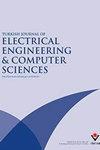基于词典的土耳其语情感分析
IF 1.5
4区 计算机科学
Q4 COMPUTER SCIENCE, ARTIFICIAL INTELLIGENCE
Turkish Journal of Electrical Engineering and Computer Sciences
Pub Date : 2019-04-01
DOI:10.3906/ELK-1807-41
引用次数: 13
摘要
在本文中,我们提出了一个土耳其语情绪分析的词汇,用于六个情绪类别的快乐,恐惧,愤怒,悲伤,厌恶和惊讶。此外,我们还研究了词源器和词干器、两种术语加权方案、四种词汇充实方法和一种词汇选择方法对词汇构建的影响。为此,我们基于包含25,989个文档的数据集TREMO生成了土耳其语情感词典。然后,我们使用词法分析器和词干分析器对文档进行预处理,以获得每个术语的字典和词干形式。然后,我们提出了两种不同的权重方案,其中考虑了六个情感类别的词频、词类频率和互信息(MI)值。然后,我们使用双元图和概念层次方法丰富了词典,并对效率问题进行了术语选择。然后,我们使用我们提出的词典,比较了基于词典的方法和基于机器学习的方法的性能。实验表明,所提出的词典在土耳其语文本的情感分析中可以有效地产生相似的结果。本文章由计算机程序翻译,如有差异,请以英文原文为准。
Lexicon-based emotion analysis in Turkish
In this paper, we proposed a lexicon for emotion analysis in Turkish for six emotional categories happiness, fear, anger, sadness, disgust, and surprise. Besides, we also investigated the effects of a lemmatizer and a stemmer, two term-weighting schemes, four lexicon enrichment methods, and a term selection approach for lexicon construction. To do this, we generated Turkish emotion lexicon based on a dataset, TREMO, containing 25,989 documents. We then preprocessed the documents to obtain dictionary and stem forms of each term using a lemmatizer and a stemmer. Afterwards, we proposed two different weighting schemes where term frequency, term-class frequency and mutual information (MI) values for six emotion categories are taken into consideration. We then enriched the lexicon by using bigram and concept hierarchy methods, and performed term selection for efficiency issues. Then, we compared the performance of lexicon-based approach with machine learning based approach by using our proposed lexicon. The experiments showed that the use of the proposed lexicon efficiently produces comparable results in emotion analysis in Turkish text.
求助全文
通过发布文献求助,成功后即可免费获取论文全文。
去求助
来源期刊

Turkish Journal of Electrical Engineering and Computer Sciences
COMPUTER SCIENCE, ARTIFICIAL INTELLIGENCE-ENGINEERING, ELECTRICAL & ELECTRONIC
CiteScore
2.90
自引率
9.10%
发文量
95
审稿时长
6.9 months
期刊介绍:
The Turkish Journal of Electrical Engineering & Computer Sciences is published electronically 6 times a year by the Scientific and Technological Research Council of Turkey (TÜBİTAK)
Accepts English-language manuscripts in the areas of power and energy, environmental sustainability and energy efficiency, electronics, industry applications, control systems, information and systems, applied electromagnetics, communications, signal and image processing, tomographic image reconstruction, face recognition, biometrics, speech processing, video processing and analysis, object recognition, classification, feature extraction, parallel and distributed computing, cognitive systems, interaction, robotics, digital libraries and content, personalized healthcare, ICT for mobility, sensors, and artificial intelligence.
Contribution is open to researchers of all nationalities.
 求助内容:
求助内容: 应助结果提醒方式:
应助结果提醒方式:


